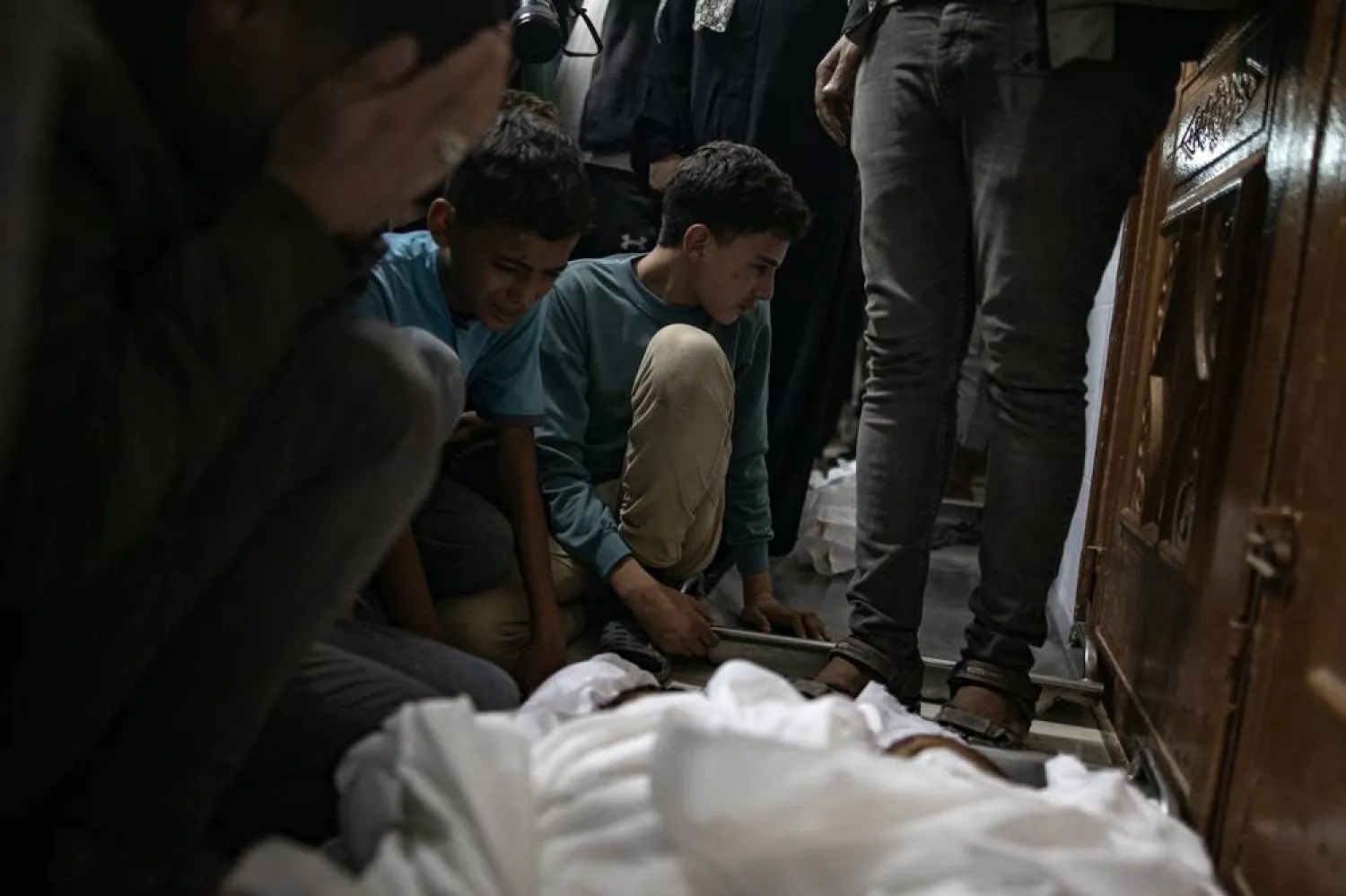Israeli airstrikes killed at least 12 Palestinians in Gaza on Monday and residents said they feared new air and ground attacks and forced evacuations were aimed at emptying areas in the enclave's north to create buffer zones against Hamas fighters.
The UN Palestinian refugee agency UNRWA said Israel was scaling back the number of aid trucks allowed into Gaza, compounding shortages of food, medicine and other essential supplies.
Israel denied this. But it said separately on Monday it had officially notified the United Nations that it was ending its relations with UNRWA, which has been a vital provider of aid to Palestinian civilians during the 13-month-long war between Israel and Hamas.
In the latest bloodshed, medics said seven people were killed in an attack on two houses in the north Gaza town of Beit Lahia on Monday. Five more were killed in separate strikes in central and southern parts of the enclave, medics told Reuters.
Several people were wounded in the attacks, they said, adding that Israeli forces had sent tanks into the northeast of Nuseirat camp earlier on Monday.
Israel deployed tanks into Jabalia, Beit Hanoun, and Beit Lahia on Oct. 5, saying it intended to prevent Hamas fighters from regrouping.
The Palestinian Health Ministry said Israeli forces were continuing to bomb the Kamal Adwan Hospital and had injured many staff and patients.
"The medical staff cannot move between the hospital departments and cannot rescue their injured colleagues. It seems that a decision has been made to execute all the staff who refused to evacuate the hospital," it said.
There was no immediate comment from Israel on that situation.
Palestinians said the new offensives and orders for people to leave were "ethnic cleansing" aimed at emptying two northern Gaza towns and a refugee camp to create buffer zones. Israel denies this, saying it is combating Hamas fighters who launch attacks from there.
The Hamas-run Gaza government media office put the number of Palestinians killed since Oct. 5 at 1,800. It said 4,000 others were wounded.
There was no confirmation on the figure from the territory's health ministry and Israel has repeatedly accused the Hamas media office of exaggerating the figures of the dead.
Israel says its forces have killed hundreds of Palestinian gunmen and dismantled military infrastructure in Jabalia in the past month.
More than 43,300 Palestinians have been killed in more than a year of war in Gaza, according to Gaza authorities, and much of the territory has been reduced to ruins.
The war erupted after Hamas-led fighters attacked Israel on Oct. 7, 2023, killing some 1,200 people and taking 251 hostages back to Gaza, according to Israeli tallies.
'UNSPEAKABLE SUFFERING'
UNRWA head Philippe Lazzarini said on Monday that Israel has scaled back the entry of aid trucks into the Gaza Strip to an average of 30 trucks a day, the lowest in a long time. This represented only 6 percent of the commercial and humanitarian supplies that used to enter Gaza before the war, he said.
"This cannot meet the needs of 2 million people, many of whom are starving, sick, and in desperate conditions," Lazzarini said on X.
An Israeli government spokesman said no limit had been imposed on aid entering Gaza, with 47 aid trucks entering northern Gaza on Sunday alone.
Israeli statistics reviewed by Reuters last week showed that aid shipments allowed into Gaza in October remained at their lowest levels since October 2023.
Earlier on Monday, Israel's foreign ministry said it had officially notified the United Nations it was cancelling the agreement that regulated its relations with UNRWA since 1967 - effectively banning it.
"Restricting humanitarian access and at the same time dismantling UNRWA will add an additional layer of suffering to already unspeakable suffering," Lazzarini said.









